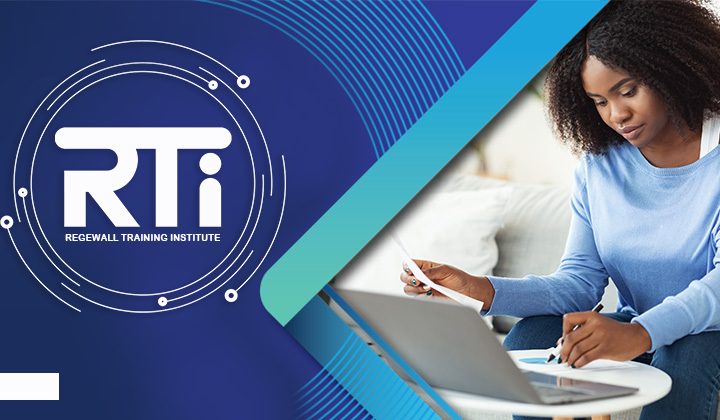Excellence in Digital Governance

About Course
This RTI course is to equip participants with the knowledge, skills, and frameworks necessary to lead, design, and implement effective, ethical, and citizen-centric digital governance in public sector organizations.
Target Audience:
-
Government officials and public sector leaders
-
Policymakers and strategists
-
IT professionals and managers in government
-
Public service project and program managers
-
Anyone involved in or affected by digital transformation initiatives in the public sector
Course Outline
Module 1: Foundations of Digital Governance
Learning Objectives:
-
Understand the core concepts and importance of digital governance.
-
Identify the key principles that underpin effective digital governance.
-
Recognize the evolution from e-government to holistic digital governance.
-
Appreciate the critical role of leadership in driving digital governance.
Topics:
-
Introduction to Digital Governance:
-
Defining “Digital” and “Governance” in the public sector context.
-
What is Digital Governance? Scope and Dimensions.
-
Distinguishing Digital Governance from E-Government and IT Governance.
-
-
The Imperative of Digital Governance:
-
Benefits: Improved service delivery, efficiency, transparency, and citizen engagement.
-
Risks of poor digital governance: Security breaches, project failures, digital divide, erosion of trust.
-
The impact of global trends (digitalization, datafication) on public administration.
-
-
Core Principles of Good Digital Governance:
-
Accountability & Responsibility
-
Transparency & Openness
-
Participation & Inclusivity
-
Effectiveness & Efficiency
-
Security & Resilience
-
Ethics & Fairness
-
Sustainability & Adaptability
-
-
Evolution of Governance in the Digital Age:
-
From E-Government (service delivery) to Digital Governance (holistic strategic approach).
-
The Whole-of-Government (WofG) approach.
-
-
Leadership and Political Will:
-
The role of champions in driving digital transformation.
-
Building a digital-first culture within public organizations.
-
Securing commitment and resources.
-
Module 2: Strategic Frameworks for Digital Governance
Learning Objectives:
-
Learn how to develop and align digital strategies with public sector goals.
-
Understand the necessary policy, legal, and regulatory frameworks.
-
Grasp the fundamentals of data governance and interoperability.
Topics:
-
Developing a National/Organizational Digital Strategy:
-
Vision, mission, and strategic objectives for digital transformation.
-
Stakeholder analysis and engagement.
-
Roadmap development and prioritization.
-
Alignment with national development plans and sectoral policies.
-
-
Policy, Legal, and Regulatory Frameworks:
-
Crafting enabling policies for digital services, data sharing, and innovation.
-
Addressing Legal Implications: Digital Signatures, E-Transactions, and Evidence.
-
Regulatory considerations for emerging technologies (AI, IoT).
-
-
Data Governance in the Public Sector:
-
Principles of data governance: quality, security, privacy, lifecycle management.
-
Establishing data governance frameworks and roles (e.g., Chief Data Officer).
-
Data classification, standards, and metadata.
-
Promoting data sharing and use while ensuring protection.
-
-
Interoperability Frameworks:
-
Importance of technical, semantic, organizational, and legal interoperability.
-
Developing and implementing national interoperability frameworks (NIFs).
-
Standards and protocols for seamless information exchange.
-
-
Architecting Digital Government:
-
Enterprise Architecture for the public sector.
-
Shared services and platforms.
-
Modular design and future-proofing systems.
-
Module 3: Implementing Digital Services and Transformation
Learning Objectives:
-
Master citizen-centric approaches to designing digital public services.
-
Understand project and change management for digital initiatives.
-
Explore the application of key technologies in the public sector.
Topics:
-
Citizen-Centric Service Design:
-
Understanding user needs and journey mapping.
-
Design thinking and human-centered design principles.
-
Co-creation and co-production of services with citizens.
-
Ensuring accessibility and usability for all.
-
-
Managing Digital Transformation Projects:
-
Project lifecycle management in the public sector.
-
Agile vs. Waterfall methodologies: choosing the right approach.
-
Risk management for digital projects.
-
Procurement and vendor management for digital solutions.
-
-
Change Management in the Digital Era:
-
Addressing resistance to change.
-
Communication strategies for digital initiatives.
-
Building digital skills and capacity within the workforce.
-
Fostering a culture of innovation and continuous learning.
-
-
Leveraging Key Technologies:
-
Cloud Computing: Benefits, risks, and adoption strategies for government.
-
Artificial Intelligence (AI) & Machine Learning (ML): Potential applications, ethical considerations, and governance.
-
Big Data & Analytics: Harnessing data for evidence-based policymaking and service improvement.
-
Internet of Things (IoT): Opportunities for smart cities, resource management, and public safety.
-
Blockchain: Potential use cases in government (e.g., identity, records).
-
Module 4: Ensuring Security, Privacy, and Ethical Considerations
Learning Objectives:
-
Understand the cybersecurity landscape and mitigation strategies for the public sector.
-
Grasp data privacy principles and regulatory requirements.
-
Critically assess the ethical implications of digital technologies in government.
-
Learn how to build and maintain public trust in digital government.
Topics:
-
Cybersecurity in the Public Sector:
-
Common cyber threats and vulnerabilities.
-
Developing a national/organizational cybersecurity strategy.
-
Incident response and business continuity planning.
-
Building a security-aware culture.
-
-
Data Privacy and Protection:
-
Fundamental principles of data privacy.
-
Overview of key regulations (e.g., POPIA, GDPR – adapt to local context).
-
Privacy by Design and by Default.
-
Data breach notification and management.
-
-
Ethical Implications of Digital Technologies:
-
AI ethics: bias, fairness, transparency, accountability in algorithmic decision-making.
-
Surveillance and civil liberties.
-
The ethical use of data.
-
Establishing ethical guidelines and oversight bodies.
-
-
Building Trust in Digital Government:
-
Transparency in data use and automated decisions.
-
Mechanisms for redress and accountability.
-
Communicating security and privacy measures effectively.
-
-
Digital Identity Management:
-
Models for secure and trusted digital identities.
-
Balancing convenience, security, and privacy.
-
Legal and Interoperability Aspects of Digital ID.
-
Module 5: Fostering Digital Inclusion and Participation
Learning Objectives:
-
Understand the challenges of the digital divide and strategies to address it.
-
Learn how to design accessible and inclusive digital services.
-
Explore the role of open government and e-participation.
Topics:
-
Bridging the Digital Divide:
-
Understanding the dimensions of the digital divide (access, skills, affordability).
-
Strategies for ensuring equitable access to digital infrastructure and services.
-
Targeted programs for vulnerable and marginalized groups.
-
-
Accessibility of Digital Services (eAccessibility):
-
Web Content Accessibility Guidelines (WCAG) and other standards.
-
Designing for users with disabilities.
-
Assistive technologies.
-
-
Open Government and Open Data:
-
Principles of open government: transparency, participation, collaboration.
-
Benefits and challenges of open data initiatives.
-
Developing open data policies and platforms.
-
Fostering an ecosystem for data reuse and innovation.
-
-
E-Participation and Citizen Engagement:
-
Tools and platforms for online consultation, deliberation, and feedback.
-
Engaging citizens in policymaking and service design.
-
Challenges and best practices for effective e-participation.
-
-
Building Digital Literacy and Skills:
-
Assessing digital literacy needs across the population and within the public sector.
-
National digital literacy programs.
-
Upskilling and reskilling the public workforce.
-
Module 6: Measuring Performance and Continuous Improvement
Learning Objectives:
-
Develop skills to measure the impact and effectiveness of digital governance initiatives.
-
Understand how to use data for continuous improvement.
-
Identify future trends shaping digital governance.
Topics:
-
Performance Measurement Frameworks for Digital Governance:
-
Defining Key Performance Indicators (KPIs) and metrics.
-
Linking digital initiatives to tangible public value outcomes.
-
Data collection and analysis for performance monitoring.
-
-
Monitoring and Evaluation (M&E) of Digital Initiatives:
-
M&E methodologies tailored for digital projects.
-
Reporting and communicating results to stakeholders.
-
Using M&E findings for adaptive management.
-
-
Benchmarking and International Best Practices:
-
Learning from successful digital governance models worldwide.
-
Adapting best practices to the local context.
-
Participating in international indices and assessments (e.g., UN E-Government Survey).
-
-
Cultivating a Culture of Innovation and Continuous Improvement:
-
Encouraging experimentation and learning from failures.
-
Establishing feedback loops with citizens and staff.
-
Agile governance for a rapidly changing digital landscape.
-
-
Future Trends in Digital Governance:
-
The future of AI in government.
-
Quantum computing and its potential impact.
-
The metaverse and public services.
-
Evolving citizen expectations.
-
Module 7: Case Studies and Practical Application
Learning Objectives:
-
Apply learned concepts to real-world scenarios.
-
Develop a foundational digital governance action plan.
Topics:
-
Analysis of Successful Digital Governance Initiatives:
-
In-depth review of selected local, national, or international case studies.
-
Identifying critical success factors and lessons learned.
-
-
Learning from Failures in Digital Transformation:
-
Examining case studies of digital projects that faced significant challenges or failed.
-
Understanding common pitfalls and how to avoid them.
-
-
Workshop: Developing a Digital Governance Action Plan:
-
Participants work in groups to develop a mini action plan for a specific public service or organizational challenge.
-
Focus on applying principles, frameworks, and strategies discussed throughout the course.
-
Presentation and peer feedback.
-
Assessment (Optional):
-
Pre and post-course knowledge assessment.
-
Participation in discussions and activities.
-
Group project/presentation (e.g., the action plan developed in Module 7).
-
Individual assignment or reflection paper.

